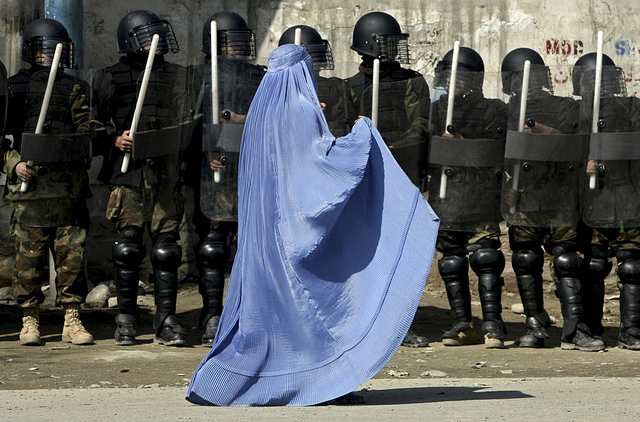- About
- Topics
- Story
- In-Depth
- Picks
- Opinion
- News
- Donate
- Signup for our newsletterOur Editors' Best Picks.Send
Read, Debate: Engage.
| November 03, 2015 | |
|---|---|
| topic: | Freedom of Expression |
| tags: | #Afghanistan, #Pajhwok, #social media, #Taliban |
| located: | Afghanistan |
| by: | Shadi Khan Saif |
From practically no nationwide infrastructure for telecommunication, Afghanistan now has some 20 million active telecom users. Many Afghans still remember the days in the 1990s when they had to travel to neighboring Pakistan to talk to their loved ones calling home from abroad.
Within years of the advent of telecom technology, backed by wireless devices like mobile phones, laptops etc, social media networks have now become the talk of the town even in the most remote and rural corners of the country that remained isolated for decades.
Various urgencies like the fragile security situation in Afghanistan have also promoted the development of social media. Most recently, a devastating earthquake on October 26 in the northeast of the country evoked a sense of unity in action among the Afghans to gather information and mobilize resources to provide relief for their countrymen in need.
According to the country’s Ministry of Information and Culture, there are some 1.2 million social media users. And unlike many western and developed countries, social media is not just about socializing and selfies but a strong and meaningful platform for political discourse, opinion-making, campaigns and heated debates over serious topics.
Danish Karokhail, Editor-in-Chief of the country’s leading news agency “Pajhwok” believes Afghans have fought hard to earn this space where they can exchange views about almost everything with liberty.
The growing power and reach of the social media, however, has irked the authorities and other parallel centers of power like the Taliban and warlords to a great extent. The Taliban have declared a number of journalists of general social media users that have a huge following for their strong anti-militant demeanor.
The government on the other end has publically expressed annoyance towards some users abusing this liberty. Last month, the country’s spy agency National Director of Security (NDS) criticized a satirical Facebook page “Kabul Taxi” for ‘compromising the security of NDS workers in an article it published”.
Kabul Taxi that has a cover photo of a yellow taxi saying “Life is bitter, Future unknown!” has over 63, 000 followers is just one of many such faces that boldly holds the government and the rebels accountable with hard-hitting articles.
The government’s stand against this page was resisted by the Afghan journalist community with unity.
The Wolesi Jirga (lower house of the parliament) is working to regulate the law on media in a bid to bring the social media under it. Karokhail is like many senior Afghan journalists who are in favor of accountability and regulations of the press but not at the price of its liberty.
“In my opinion, the government too does not want to impose restriction, but since it (social media) has become big and strong the government feels it needs to be streamlined and made accountable to the law”.
Almost all 25 ministries in this country, a number of independent government departments, law enforcement agencies including the army and police maintain an updated social media status on various platforms. In some cases, their official websites lag behind their social media tabs.
To the surprise of many, apart from the aspect of violence that limits the abilities of journalists, Afghanistan is seen by many as a rather progressive nation in terms of press freedom in the modern age. Ben Bruges, a leading international social media consultant in Afghanistan agrees.
“Freedom of speech for journalism in Afghanistan is much better than some regional countries like Iran and Pakistan, Youtube is still banned in Pakistan but no website is banned here [in Afghanistan], in Iran, the government blocked the social networks during the Iranian Green Movement [2009 Presidential Elections] but no one in the Afghan government opted for that here”, he recalled.
Ben and a large group of social media savvy individuals manage to pull the first-ever Afghan Social Media Awards. Outstanding social media users were given awards in ten categories at the end of a 3-day Social Media Summit on 20th October.
Ben noted that some elements within the government do see the robust social media as a threat but not the government as a whole. He, however, stressed that the robust nature of social media in Afghanistan has become so strong that it is very difficult for someone to silence it now.
By copying the embed code below, you agree to adhere to our republishing guidelines.
